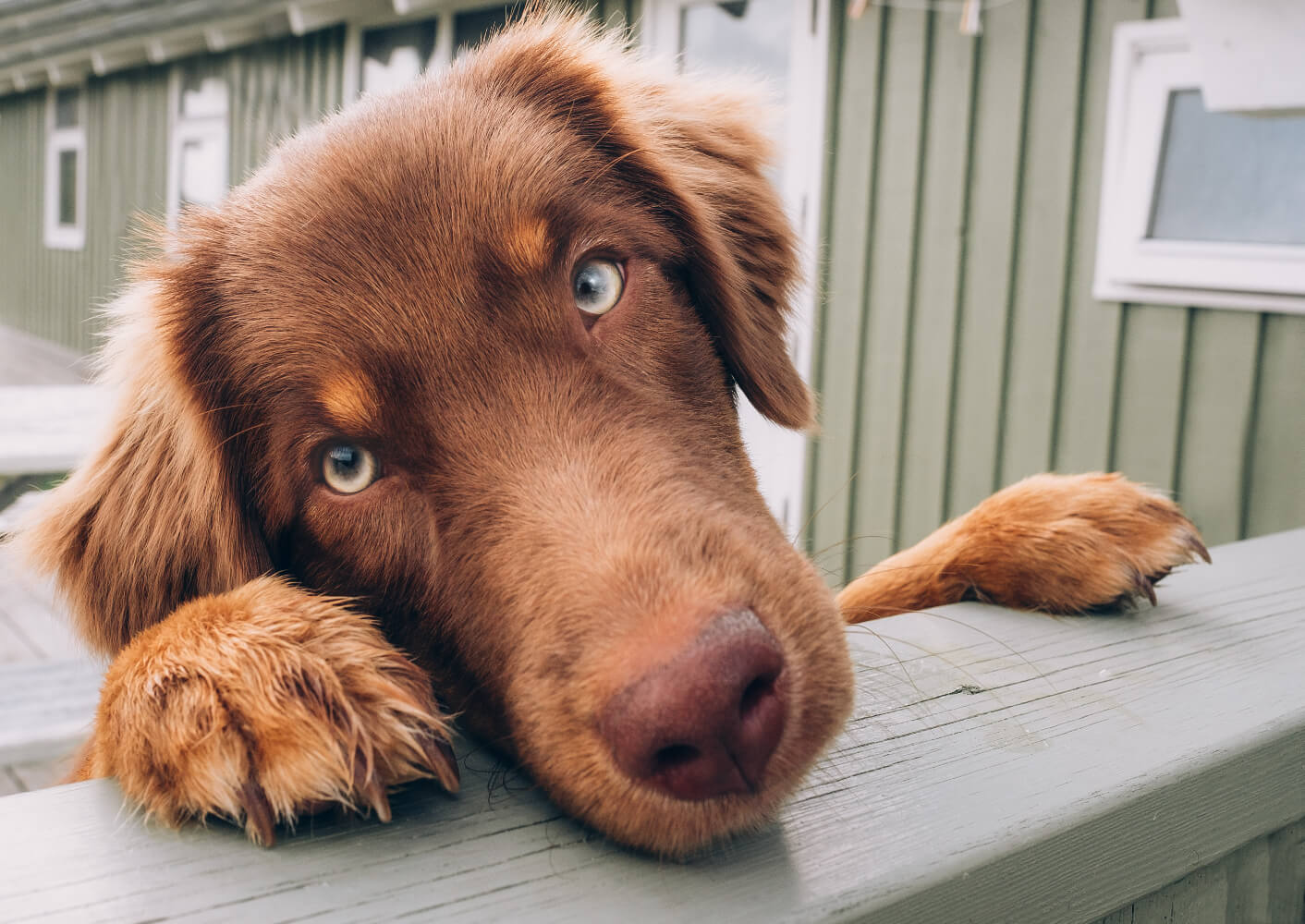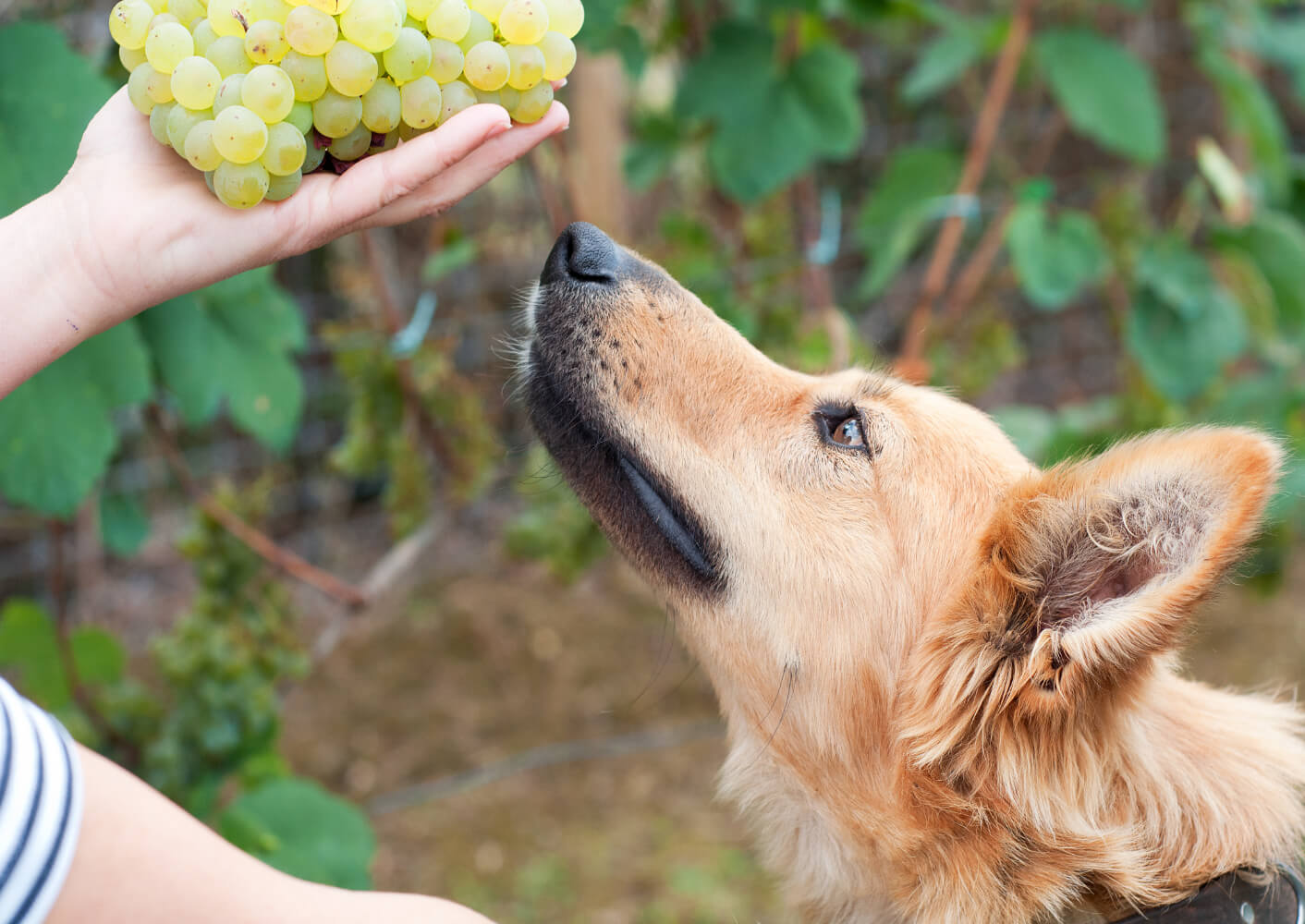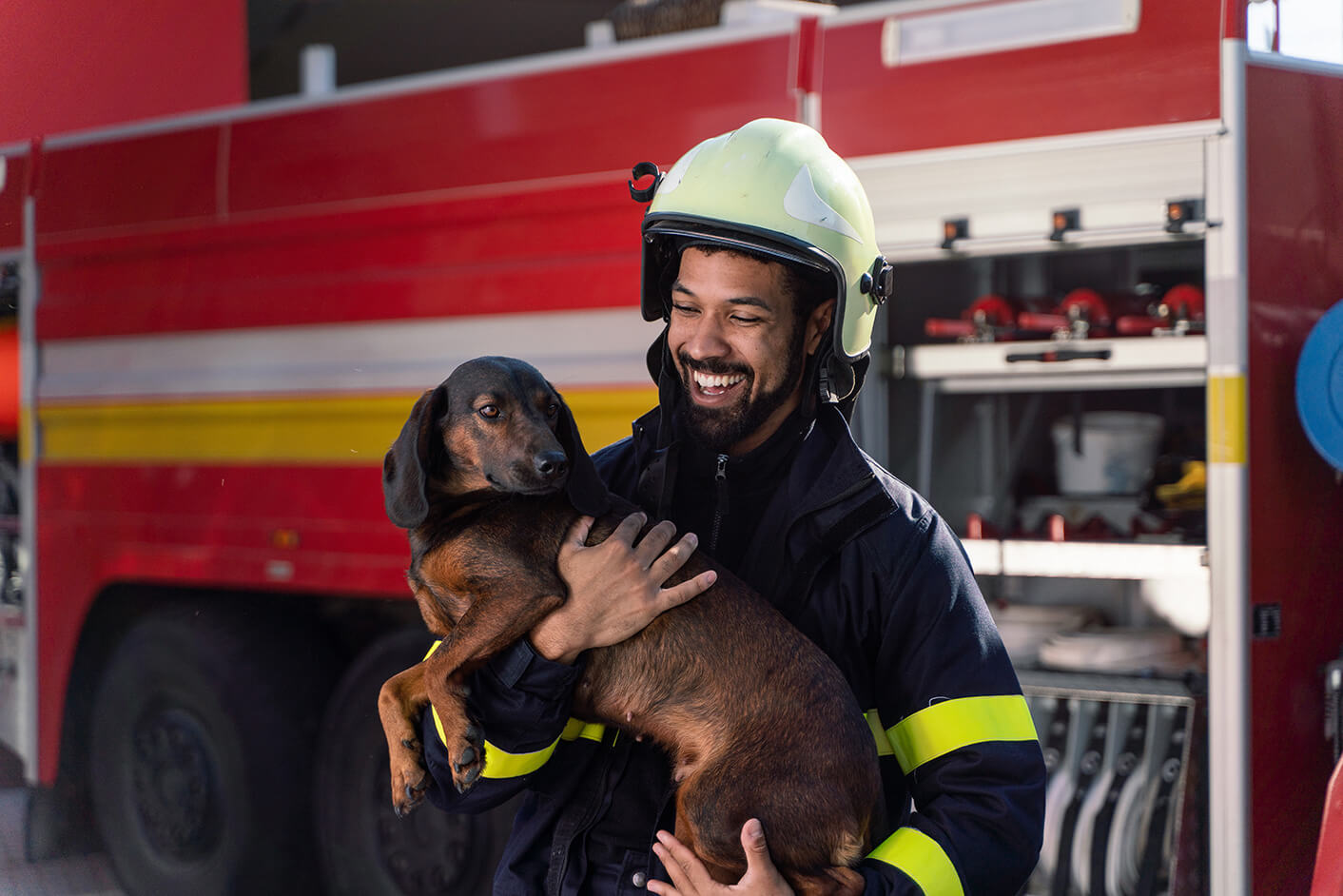Included in this article:
- Toxic food
- What to do in case of poisoning?
- Points to note

Your dog should not eat this
Sometimes it is hard for us owners to resist the sweet look of our pelt-nose - and quickly a treat wanders from our plates into the dog's mouth. But be careful: foods that are completely harmless for us humans can have life-threatening consequences for your dog when eaten. Basically, not every dog tolerates every food - just like us humans, dogs can also suffer from intolerances or food allergies. However, some supposed treats should never be on your dog's menu.
Do you know what is poisonous for dogs, how to recognise poisoning and what to do in an emergency? This article answers these questions.
8 Foods that are toxic to your dog
Some foods are toxic and life-threatening to your dog even in small amounts - so these should be at the top of the list of foods to avoid:
1. raw pork and wild boar meat.
Eating raw pork or wild boar meat can infect your dog with the Aujeszky virus. This herpes virus is harmless to humans but can cause dangerous diseases in dogs. Tip: Cook meat at at least 60 degrees - this will kill the pathogen and you can feed the meat.
Symptoms:
- Loss of appetite
- Shortness of breath
- Pronounced salivation
- Vomiting
- Raving fits
- Restlessness
- Change of temper
- Tics
- unconsciousness
When the first symptoms appear, it is unfortunately already late - Aujeszky's disease in dogs leads to death within 2-5 days. Veterinarians can only put affected dogs out of their misery.

2. chocolate and cocoa
Chocolate and cocoa contain theobromine, which is toxic to dogs. The higher the cocoa content, the greater the proportion of the poison. Dark chocolate is therefore particularly dangerous for your furry friend. Even small amounts can lead to cardiovascular failure and death. Theobromine is also found in tea!
Symptoms:
- Cramps
- Cardiac arrhythmia
- Breathing difficulties
- Disturbed consciousness
- vomiting or diarrhoea
What has a stimulating effect on humans can lead to heart failure in dogs. The methylxanthine contained in caffeine also has a threatening effect on the dog's nervous system. If your dog has ingested coffee or tea, you should go to the vet immediately.
Symptoms:
- Palpitations
- Vomiting
- Restlessness
In principle, stone fruit such as plums, cherries or peaches are safe for your dog. However, the pits are poisonous because they contain cyanide. In the stomach it is converted into prussic acid, which in the worst case stops cell respiration. The consequence: internal asphyxiation, because the cells die due to the lack of oxygen.
Further risks:
- Risk of constipation due to fruit pits in the intestine.
- Risk of injury in the intestine due to the sharp edges
- Shortness of breath
- Breathing difficulties
- Diarrhoea
- Vomiting
- Fever
- Cramps
5. avocado
Avocados contain persine, which can attack the dog's heart muscle and lead to death. If your dog even swallows the pit, he can choke on it.
Symptoms:
- Respiratory distress
- Diarrhoea
- Vomiting
- Palpitations
- Fluid accumulation in the abdominal cavity
It goes without saying that alcohol or ethanol is a liver toxin and should not be part of a dog's diet. Dogs metabolise alcohol very slowly - even small amounts cause respiratory distress, vomiting and coordination problems.
7 Garlic and onions
Whether boiled, fried, peeled or in powder form, garlic and onions are toxic to dogs. They contain sulphides which can destroy the red blood cells in the dog - consequence: anaemia. As little as 5 grams per kilogram of body weight is harmful.
Symptoms:
- Refusal of water and food
- Diarrhoea and vomiting
- Pale mucous membranes
Sultanas and grapes contain oxalic acid, which can cause poisoning even in small amounts in small breeds or in poor health. Too high a concentration can result in kidney failure.
Symptoms:
- Stomach cramps
- Diarrhoea and vomiting
- Lethargy
9 foods that are harmful to your dog
The following foods can be harmful to your dog - how strongly your pet reacts depends on its size and the amount consumed.
Caution is advised in any case with:
- Nightshade plants (raw potatoes, aubergines, tomatoes): contain the harmful substance solamine.
- Raw legumes: contain the toxin phasin
- Salt/salty snacks: upsets your dog's electrolyte balance and can lead to kidney problems.
- Milk: dogs don't have the enzymes needed to digest lactose.
- Drinks in general: many drinks contain sugar and/or caffeine - taboo for dogs!
- Bacon: too high in fat; can lead to metabolic disorders and stress kidneys and pancreas.
- Walnuts and macadamia nuts: Nuts are generally not suitable for consumption by dogs; walnuts in particular may also be infested with a fungus that is hazardous to health. Macadamia nuts, like all nuts, contain unhealthy phosphorus and they are carriers of a yet unknown toxin that attacks digestion and nerves.
- Sweetener: Xylitol can quickly lower blood sugar levels and is therefore dangerous for dogs.
- Poultry bones: They can splinter and cause internal injuries.
In an emergency: What to do in case of poisoning?
If you observe that your dog has eaten one of the foods presented, there is a risk of poisoning.
The following symptoms are most common after ingestion: Diarrhoea, vomiting, excessive salivation, trembling, cramps or fever.
Now you should lose no time and drive to the veterinary clinic.
The following information is relevant for the attending doctor: When, what and how much of the respective toxic food did your dog eat?
Further tips:
- Get your dog to vomit with medical assistance.
- If available: Give your dog stomach protection.
- Charcoal tablets can help bind the poison.
How to prevent your dog from being poisoned
Pay attention to your dog's diet: It is best to teach your dog from the beginning that he should not eat from the table or find supposed treats on the street. The same applies to family and friends: they should not give your dog any "snacks" - because not everything that is harmless for us humans is also good for your dog.

